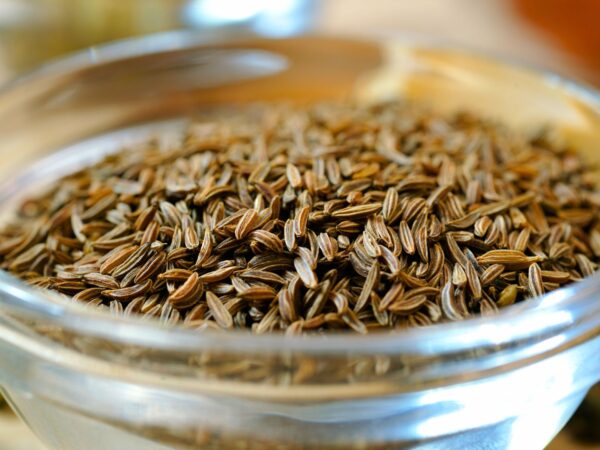Caraway seed, also known as Meridian fennel or Persian cumin, is a spice with a rich history dating back to ancient times. It has been widely used in European, Middle Eastern, and Asian cuisine for thousands of years, not only for its unique flavor but also for its medicinal properties. Some of the earliest evidence of caraway being used was found in Mesopotamian and Egyptian cultures, where it was used in cooking and as a digestive aid. Caraway was also a favorite among medieval Europeans, often used to flavor breads, cakes, and meat dishes.
Origins and History
Caraway is native to parts of Europe, North Africa, and Western Asia, with the Netherlands, Poland, and Germany among the world’s largest producers today. The seeds have long been prized in regions such as Germany, Scandinavia, and Hungary, where caraway is considered an essential ingredient in many traditional dishes. In folklore, caraway seeds were believed to have protective qualities, often being used to ward off evil spirits or as part of traditional remedies.
How It’s Produced
Caraway comes from the Carum carvi plant, a biennial herb that belongs to the parsley family. The plant thrives in cooler climates and takes two years to complete its lifecycle. After flowering, the plant produces small, crescent-shaped seeds, which are harvested in the second year. These seeds are collected, dried, and sometimes lightly toasted to bring out their flavor. The drying process locks in the spice’s distinctive earthy, slightly bitter flavor with hints of anise and citrus.
Flavor Profile
The flavor of caraway seed is earthy and nutty, with a peppery bite and a touch of anise-like sweetness. This combination of flavors gives caraway its versatility in both savory and sweet dishes. The seeds have a robust flavor, and their aromatic qualities are released when toasted or ground, making them a favorite for enhancing the complexity of a dish.

Popular Recipes Using Caraway Seed
Caraway seeds are a staple in many traditional recipes, particularly in Central and Eastern Europe. They are most commonly known for their role in flavoring rye bread, but their uses extend far beyond that of baking spices. Some popular dishes that use caraway seeds include:
Rye Bread: The distinct flavor of caraway is essential in many types of rye bread, especially in Jewish and German cuisines.
Sauerkraut: Caraway adds a savory depth to fermented cabbage, which is a popular side dish in countries like Germany and Poland.
Stews and Soups: Caraway is often used in hearty soups and stews, such as Hungarian goulash.
Cheese: Some types of cheese, like Havarti and Munster, incorporate caraway for extra flavor.
Spiced Liquors: Caraway is a key ingredient in traditional European spirits like Aquavit and Kümmel.
Health Benefits
Caraway seeds have been used for their medicinal properties for centuries, particularly for aiding digestion. They help reduce bloating, gas, and indigestion, making them a popular natural remedy for stomach ailments. Rich in antioxidants, caraway seeds also contain fiber, which supports healthy digestion, and are a good source of vitamin C, iron, calcium, and other essential nutrients. Studies suggest that caraway seeds may help in managing blood sugar levels and improving overall gut health.
Spice Station
At Spice Station, we are committed to providing the freshest spices from around the world, including our premium Caraway Seeds. Whether you are baking traditional rye bread, making savory stews, or looking to add a unique flavor to your recipes, our caraway seeds from Holland are sure to bring depth and warmth to your dishes. Explore our wide variety of high quality spices, herbs, and blends, and discover the rich flavors we offer to elevate your cooking. With Spice Station, you can enjoy caraway and many other spices with the confidence that you’re getting the very best.
Order Caraway Seed today by clicking “Add To Cart“.
Reviews
There are no reviews yet.